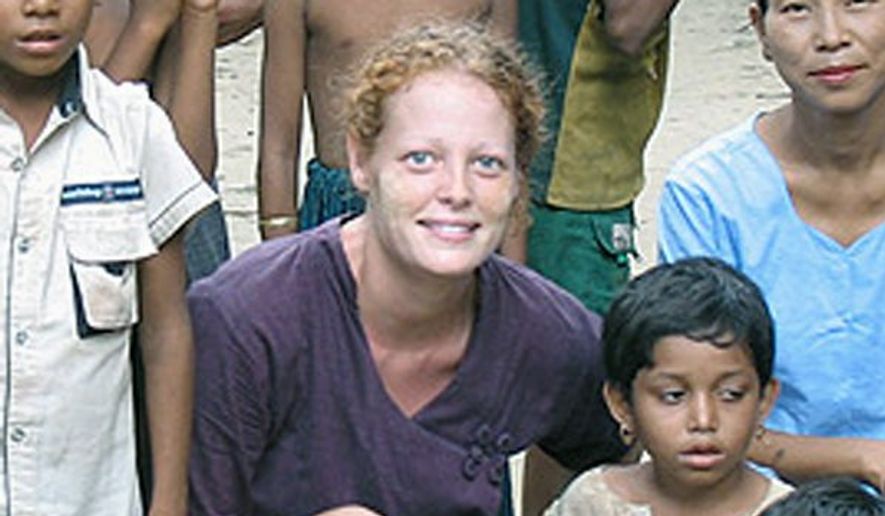The nation’s top infectious diseases official blasted states for putting into place “draconian” quarantine rules that they said could dissuade workers from volunteering on the front lines of the Ebola epidemic in West Africa and raise the threat to the U.S.
But state leaders and congressional lawmakers, faced with a fearful public, insist that evolving policies from federal specialists have forced them to take precautions that go beyond active monitoring for symptoms.
The tug of war between scientists and key politicians — some of whom face re-election contests — pulled tighter over the weekend after governors in New York and New Jersey had established a 21-day quarantine for people returning from Ebola-infested countries such as Liberia, Sierra Leone and Guinea. New York loosened its restrictions Sunday night, though.
Illinois imposed a similar measure — people may be quarantined at home — and Florida ordered 21-day monitoring for anyone who returns from the outbreak’s epicenter.
It was unclear how the quarantine would be enforced, and aid groups and medical professionals warned of unwanted side effects.
“We have to be careful that there aren’t unintended consequences. The best way to stop this epidemic is to help the people in West Africa,” Dr. Anthony Fauci, the infectious diseases director at the National Institutes of Health, told NBC’s “Meet the Press.”
SEE ALSO: 5-year-old boy tested for Ebola in New York City
Samantha Power, U.S. ambassador to the United Nations, said people should focus on the value that aid workers are providing.
“We need to encourage more, we need many more than are going right now,” she said, “and we need to find a way when they come home that they are treated like conquering heroes and not stigmatized for the tremendous work that they have done.”
“We do not want to put them in a position where it makes it very, very uncomfortable for them to even volunteer to go,” Dr. Fauci said.
One health worker got a taste of that stigma and wrote a scathing review of “inhumane” treatment by inspectors at Newark Liberty International Airport and her ongoing quarantine.
“I am scared about how health care workers will be treated at airports when they declare that they have been fighting Ebola in West Africa,” Kaci Hickox wrote in an open letter to The Dallas Morning News. “I am scared that, like me, they will arrive and see a frenzy of disorganization, fear, and most frightening, quarantine.”
New Jersey Gov. Chris Christie, a Republican, said he concluded that the quarantine was necessary to protect public health in his state and that he thinks the Centers for Disease Control and Prevention “eventually will come around to our point of view on this.”
SEE ALSO: Obama: U.S. Ebola response should not be driven by fear
Mr. Christie said Dr. Fauci was counting on “a voluntary system with folks who may or may not comply.”
The governor noted that an NBC News crew returning from West Africa was supposed to self-quarantine because its cameraman was hospitalized with Ebola.
“Two days later, they were out picking up takeout food in Princeton and walking around the streets of Princeton,” he said. The cameraman has recovered and has been released from the hospital.
The latest wave of actions was spurred by Craig Spencer, a 33-year-old doctor who was hospitalized and tested positive for Ebola after self-monitoring for fever. He had treated Ebola patients in Guinea, and some New Yorkers raised eyebrows at the fact that he had been out and about in America’s largest city.
On Sunday night though, New York Gov. Andrew Cuomo loosened the quarantine rules some, allowing health care workers to quarantine themselves at home and receive twice-a-day visits from state medical officials.
Mr. Cuomo, who had been critical of Mr. Spencer and required health care workers to stay in government facilities, also softened his rhetoric, calling doctors and nurses who treat Ebola victims “heroes” and saying more should volunteer for the task.
Rep. Darrell E. Issa, the House’s top investigator, said he understands the science — patients are not contagious until they show symptoms — but state leaders are responding to shaky assertions from federal public health officials about how to contain the virus.
“They were so sure that they were right and now people are dead. People are infected,” the California Republican said. “And governors of both parties are reacting because there isn’t a trust in the leadership of this administration. Getting that back is doable. It’s our responsibility to do it. But it’s also our responsibility now to second-guess at our level the things that are said to us to make sure the American people do have watchdogs.”
Dr. Fauci, in a series of interviews on Sunday talk shows, said leaders should “go with the science” and hinted that a graded system of monitoring that stops short of quarantine could be more effective.
“The first thing we need to do is make sure the primary goal is to protect the American people, but there are ways to do that that may not necessarily have to go that far at all,” he told NBC.
A senior White House official said Saturday that the administration is taking a “careful look” at its Ebola policies and continues to discuss the treatment of health care workers returning from affected West African countries.
Dr. Irwin Redlener, a Columbia University professor and director of the New York-based National Center for Disaster Preparedness, said logistics of the states’ quarantine policy present “a problem.”
“The challenge now is how you translate this quarantine plan to operational protocol,” Dr. Redlener said.
⦁ This article is based in part on wire service reports.
• Tom Howell Jr. can be reached at thowell@washingtontimes.com.




Please read our comment policy before commenting.